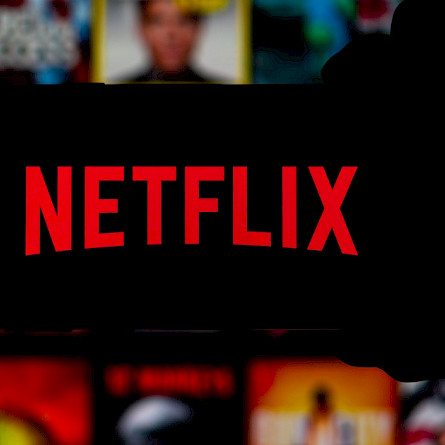In our modern economy, the concepts of goodwill and intangible assets are becoming increasingly important. A few generations ago, most Western businesses were manufacturers whose activities relied primarily on tangible assets such as factories, warehouses, or mines. Today, most companies have far less tangible business models. Their activities are based on knowledge, patents, and trademarks. Nowadays, the components of goodwill and intangible assets—including reputation, customer loyalty, employee quality and expertise, and brand recognition—are critical.
Take a well-known company such as Netflix, which we hold in several of our managed portfolios. Its market value is approaching $450 billion USD, yet if we look at its most recent balance sheet as of December 31, 2024, we see that its fixed assets amount to only $1.6 billion. Apart from its $9.6 billion in cash, the company’s primary asset is Content, which represents its investments in developing its catalog of movies and series. The company’s shareholders’ equity is less than $25 billion.
How can we justify the nearly $425 billion gap between Netflix’s market value and its shareholders’ equity? This gap is mainly attributable to the company’s intangible assets—its brand, its streaming service to which millions of subscribers worldwide are hooked, and its global leadership in a growing sector.
I believe the primary responsibility of Netflix’s executives is to cultivate this goodwill by strengthening the brand, fostering a sense of belonging among its subscribers, enhancing the appeal of its content, and ensuring the ease of use of its technology platform. Its leaders must also nurture relationships with suppliers and, most importantly, its approximately 14,000 employees, whose expertise is an invaluable asset. The last thing the company’s management wants is to antagonize anyone in its ecosystem—whether employees, suppliers, or subscribers. Remember this frequently quoted statement from Warren Buffett:
“It takes 20 years to build a reputation and five minutes to ruin it. If you think about that, you’ll do things differently.”
It seems to me that what applies to Netflix applies to any business. No company can afford missteps that would alienate the stakeholders in its business model. Today, the value of most companies rests on relationships, reputation, and customer loyalty.
This is why Donald Trump’s actions and statements astonish me so much. How can the United States antagonize long-standing partners and allies such as Canada? A significant portion of the U.S. economy’s value is based on goodwill, which, in a geopolitical context, can be understood as goodwill, benevolence, strong relationships, or trust capital.
In just a few weeks, one might wonder whether Donald Trump is in the process of destroying the goodwill that the United States has spent decades building.
Philippe Le Blanc, CFA, MBA
Chief Investment Officer at COTE 100
_______






